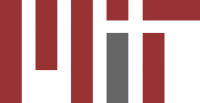Topic 1: Mentoring
Presenter: David Hosmer, Cascading Coaching, LLC on behalf of MIT Human Resources
See presentation slides and draft guidebook, Mentoring for MIT Staff: A Guidebook to Establish Successful Mentoring in Your DLC
Presentation:
- Mentoring initiative piloted at MIT, with best practices identified.
- Review key ingredients for successful mentoring initiative
- Update on mentoring resources, including guidebook
- Determining where a DLC is in establishing/enhancing mentoring efforts
- Focus on formal mentoring programs, rather than informal mentoring relationships
- Why is Mentoring important now? Responses:
- Starting office and a wide variety of backgrounds; sharing experiences. Mentoring is one good option.
- Mentoring helpful in starting AO role.
- Mentors can have their own mentor. Managers may be a good coach, but not necessarily a mentor. Coach is about asking questions for you to find your own answers; Mentor tells you how you do it, instructs you and provides answers. What matters most is what your intentions are.
- Important as a retention tool. Studies show both coaching/mentoring are helpful in retention. Employees are looking for good supervision, development, and higher pay. Employees leave their managers. People would prefer to have good supervision and development over better pay if pay is reasonable.
- Ten Steps to a Mentoring Program (see slide)
- Key elements for a successful program:
- Clear purpose
- Sponsor or champion, with credibility and can provide resources
- Program Owner with support of sponsor
- Diligent matching
- Monitoring and assessing as you go along, not just end of program evaluation; checking in with participants and if any help needed.
- Sponsor role includes:
- Selects Owner
- Supports resources/time
- Communicates broadly
- Removes barriers
- Program Owner role includes:
- Develops, implements, manages, monitors, assesses program
- Seeking resources beyond Sponsor to launch program as needed
- Facilitates matching, orientation, events, etc.
- What do you want to accomplish with your mentoring efforts? Responses:
- Important to be focused on what the goal of the program is, how you seek mentees, how you match and other decisions.
- Do you have any words of wisdom for more formal mentoring? Be aware your employees would benefit from a mentor and the mentor is most cases are not the manager/supervisor. Employees want development, not training programs.
- Create more connections. The mentor does not need to be omniscient. They don’t have to have all the answers. Help with making connections, connections.
- At Harvard, participated in a formal program. Matched with people interested in research administration or general administration. Program lasted ~6 months; had a defined beginning and end.
- Participated in pilot program at MIT. Impacted how seeks help; more open to mentoring and connections going forward.
- Experience from academic medicine mentoring program. Most would benefit from mentoring. Mentees agreeing to be a mentor in the future is key.
- Move mentees into a learning zone (see slide) partly with mentoring
- Think of mentoring beyond the traditional older/wiser stigma
- Mentoring provides answers and content to those less experienced
- Resources available:
- Revised guidebook to be released November 28th, 2022
- MIT website
- HR Mentoring Specialists
- DHosmer@mit.edu
Topic 2: Update on Search for New Enterprise Resource Planning (ERP) System
Presenters: Robin Elices and Lizz McManus
Review planning goals, timeline, activities; lessons learned; next steps.
Key Updates:
- Still early in the process.
- Looking at Oracle, SAP and Workday; no decision which system(s) to be selected.
- Will issue a request for proposals likely in Spring 2023.
- None have a good research administration module; nothing better than KC at this time.
- Not decided how would sequence a programs implementation; however, HR and Finance functions critical to implement early. Phased, iterative approach anticipated.
- Ability to have integration layer/bolt-on.
- IS&T is looking at Workday sandbox to see what the user experience is like.
Discussion:
- If SAP is selected, what would an SAP upgrade look like?
- Is there a projected timeline? Need to spend remainder of FY23 readying for a project; project team to be formed, staffing (as limited bandwidth concerns) and making decision which system best for MIT. Three-year implementation timeframe thereafter.
- When is the user involved in the design phase? This is a business design process, not just systems update. Need to figure how we get to process modernization. In the past had applied modernization on existing systems – we want to ensure we leverage new systems. We need to limit customizations of whichever system(s) selected.
- Need to not mirror prior workflow necessarily. We have system problems or gets stuck and requires manual fixes.
- What does iterative integration look like at MIT, given history of issues with prior system challenges? Spirit of the Sandbox, get sense of how the system works with Workday. Using as much real data to understand. Expect to do the same with Oracle and SAP. Seeking better, more efficient way to do business. User experience will help get us there.
- Last time we did a major update was in 1996, although had some changes since.
- Robin and LIzz will plan to come back to AACII with regular updates.


